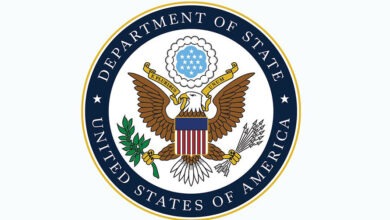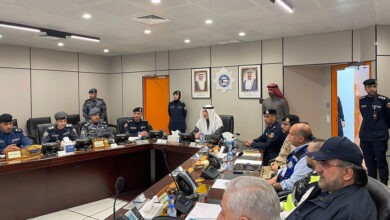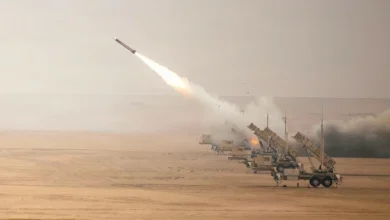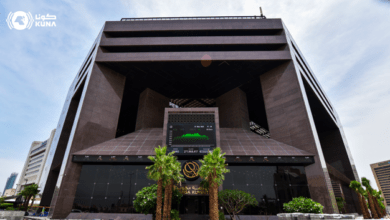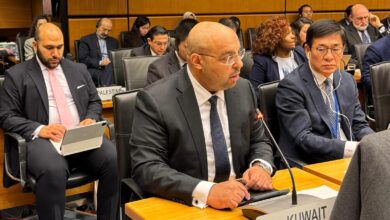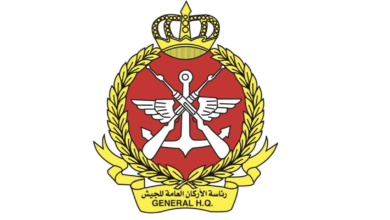Global experts convene in Kuwait to tackle the escalating water scarcity crisis

By Dr. Assad Hafeez
UN Resident Coordinator a.i. and WHO Representative in the State of Kuwait
Water Scarcity Roundtable, Kuwait Foundation for the Advancement of Sciences, 15 April 2025
Water scarcity is no longer a distant threat—it is a global crisis with immediate and far-reaching implications for health, prosperity, and security. On behalf of the United Nations Resident Coordinator’s Office in the State of Kuwait, I was honored to open the Water Scarcity Roundtable Discussion, held at the Kuwait Foundation for the Advancement of Sciences (KFAS). This timely event convened global experts, diplomats, policymakers, and thought leaders to address one of the most pressing sustainability challenges of our time.
Set in Kuwait—one of the world’s most water-stressed regions—this discussion is both urgent and symbolic. Coming just weeks after World Water Day (22 March) and shortly before International Mother Earth Day (22 April), the roundtable serves as a vital reminder of our collective responsibility to protect water resources and preserve the planet.
We were privileged to hear opening remarks from His Excellency Dr. Matar Hamed Al Neyadi, Ambassador of the United Arab Emirates to Kuwait, who introduced the UAE’s compelling discussion paper, Ripple Effect: Water Scarcity – The Hidden Threat to Global Security and Prosperity. His message underscored the cascading impact of water scarcity across sectors, from public health and economic development to peace and stability.
We are equally grateful to KFAS for hosting and supporting this initiative, and to the international panelists who have brought their diverse expertise and experiences to the table.
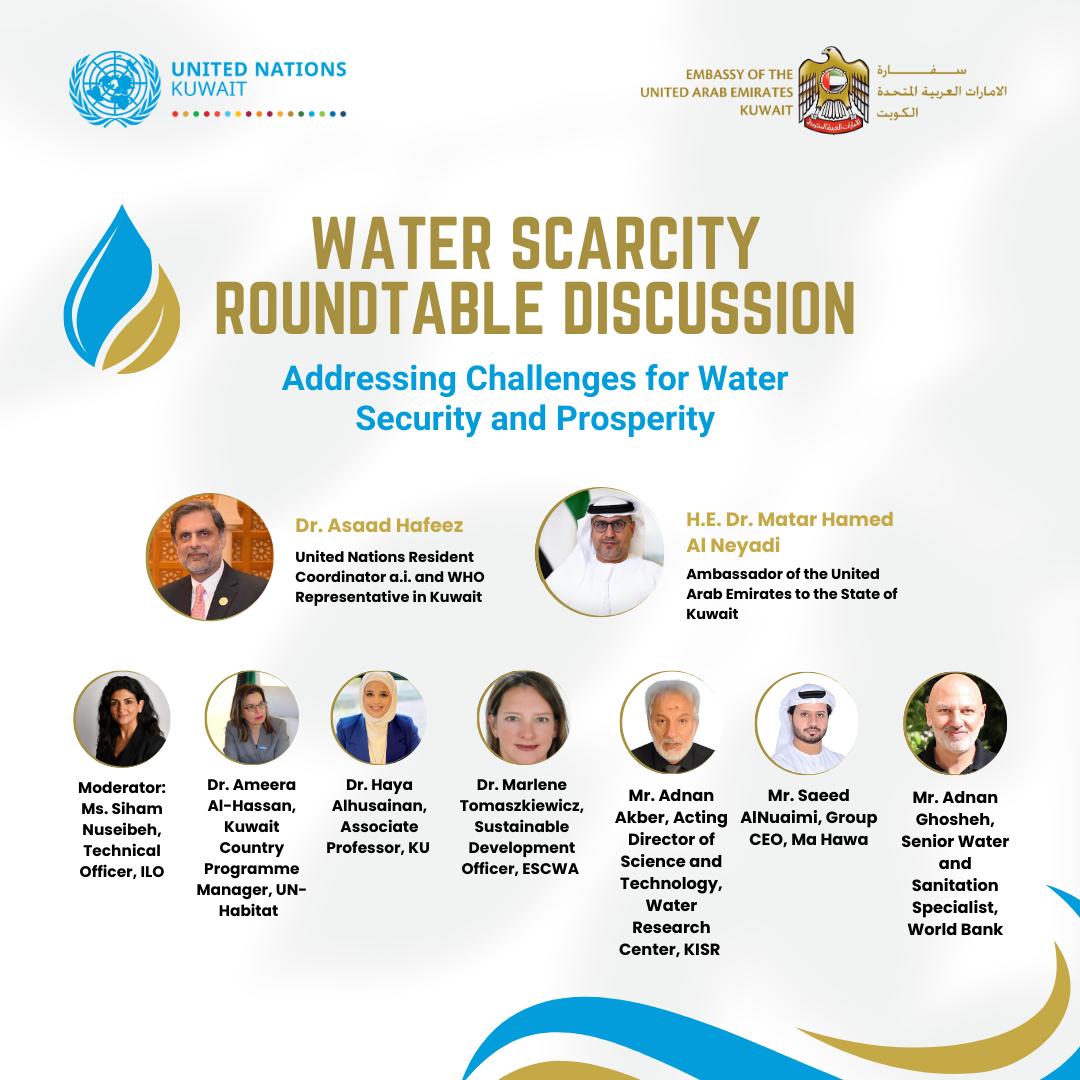
Water Security: A UN Priority
The United Nations and its Member States have firmly placed water at the center of the global sustainable development agenda. In 2024 alone, we saw several key milestones:
- The appointment of Retno Marsudi as the first UN Special Envoy on Water to drive global advocacy and coordination.
- The Pact for the Future, adopted in September 2024, which recognized water scarcity as a fundamental development challenge.
- Water featured prominently in both COP16 on desertification and COP29 on climate change.
- Enhanced monitoring through the UN-Water Integrated Monitoring Initiative for SDG 6 led to the publication of global progress reports on water and sanitation.
- The 2026 UN Water Conference, now on the horizon, aims to mobilize the political will and financial investments needed to secure water for all.
- The UN General Assembly’s endorsement of the International Decade for Action on Water (through 2028) marks a sustained global focus on this existential risk.
Here in Kuwait, the UN stands committed to working in close partnership with local institutions and regional stakeholders to advance sustainable water management and resilience.
Since the launch of the Sustainable Development Goals in 2015, the world has made measurable gains toward achieving SDG 6: Clean Water and Sanitation. Among the positive trends:
- Water-use efficiency rose by 19% across economic sectors from 2015 to 2021.
- Access to safely managed drinking water increased globally from 69% to 73% between 2015 and 2022.
- The number of countries reporting wastewater statistics grew from 69 to 107, now covering nearly three-quarters of the world population.
- Integrated water resources management has improved, with global implementation scores rising from 49% in 2017 to 57% in 2023.
- A remarkable 191 countries are reporting SDG 6 data—placing it among the top tiers for global monitoring coverage.
- Over 90% of countries now have legal or policy frameworks ensuring community participation in rural water governance.
However, progress is uneven and insufficient. As of today:
- 2.2 billion people still lack access to safely managed drinking water.
- 3.5 billion live without safely managed sanitation services.
- Water stress globally has worsened, rising to 19% in 2021.
- Only 43 of 153 countries sharing transboundary water bodies have operational cooperation agreements covering the majority of shared resources.
- Official Development Assistance to the water sector has declined by 5% since 2015.
- Ecosystem degradation remains rampant, with half of all nations reporting deteriorating freshwater systems.
To bridge these gaps, the SDG 6 Global Acceleration Framework outlines five essential pathways:
- Mobilize and Target Financing: Increase and optimize water-related investments.
- Strengthen Data Systems: Build robust systems for monitoring, accountability, and decision-making.
- Develop Capacity and Skills: Empower the water workforce to deliver and innovate.
- Promote Innovation and Technology: Adopt smart solutions for water conservation, efficiency, and management.
- Enhance Governance and Collaboration: Foster cross-sectoral, inclusive, and transboundary cooperation for sustainable water governance.
A Call to Collective Action
This roundtable is more than a platform for discussion—it is a catalyst for action. By sharing knowledge, building partnerships, and aligning priorities, we can co-create solutions that strengthen global water security and safeguard the well-being of future generations.
Let us heed the words of UN Secretary-General António Guterres, who reminded the world at the 2023 Water Conference:
“Without water, there can be no sustainable development. That’s why water needs to be at the center of the global political agenda. Now is the time to act.”
Indeed, the time to act is now.







